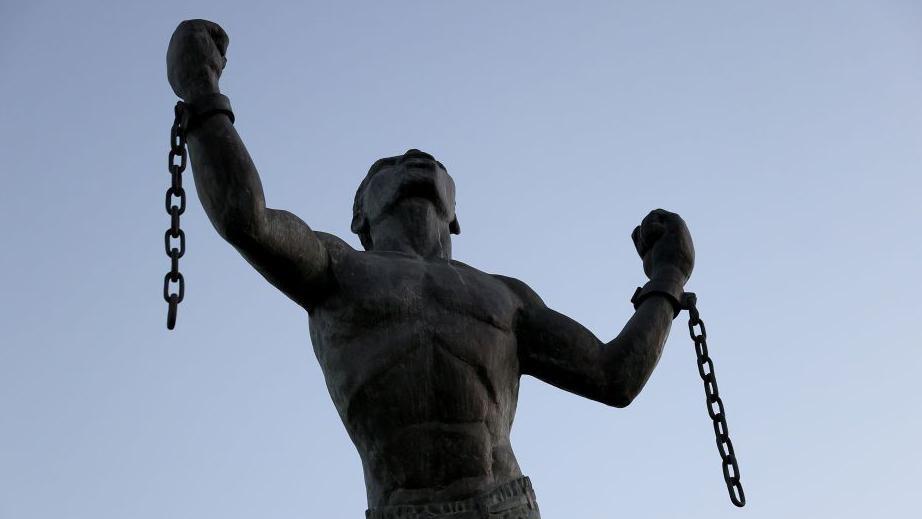Calls for the United Kingdom to provide reparations for its historical role in the slave trade have resurfaced ahead of the Commonwealth leaders’ meeting. While UK Labour leader Sir Keir Starmer indicated that the issue of reparatory justice would not be on the agenda, Commonwealth nations are set to engage in what they term a “meaningful conversation” about reparations. The UK has faced long-standing demands for reparations due to its involvement in the Atlantic slave trade, which resulted in the enslavement of millions of Africans who were forced to labor primarily on plantations in the Caribbean and Americas. Although the Chancellor dismissed the idea of financial reparations, discussions have surfaced regarding alternative forms of reparations.
Reparations are intended to serve as a means of addressing historical injustices deemed wrong or unfair. The British government, prominently involved in the slave trade from the 1500s, took part alongside other European nations. The UK played a crucial role in the abolition of slavery, passing a law in 1833 that compensated British plantation owners for their financial losses tied to emancipated enslaved people, which amounted to approximately £20 million. Notably, the UK only completed repayment of this debt in 2015. Advocates of reparations argue that they can take various forms, ranging from financial payments to symbolic gestures. The United Nations emphasizes that reparations should be “proportional to the gravity of the violations and the harm suffered,” highlighting the multifaceted nature of reparatory justice.
Financial reparations remain the most recognized format for reparations, where states compensate countries whose communities suffered due to slavery. A recent 2023 report co-authored by a UN judge suggested that the UK owes over £18 trillion in reparations to 14 nations. While the scale of compensation might seem daunting, many European nations would face difficulty finding such extensive sums. For instance, the UK government’s annual expenditure is about £1.2 trillion, making the allocation of further funds politically challenging. Some activists propose that reparations could be distributed gradually over time. In contrast, others argue that the discussion should center on debt relief for developing nations that incurred debts to Western countries, where forgiving or reducing such debts could alleviate economic burdens without substantial political backlash.
Another avenue of reparations is issuing formal apologies, which could appear straightforward on the surface since they involve a public acknowledgment of wrongdoings without financial expenditures. Some institutions, including the Church of England, have expressed apologies for their involvement in slavery. However, governments may hesitate to apologize due to potential legal implications regarding financial responsibilities. Former Prime Minister Tony Blair recently noted that it might be inappropriate for states to apologize for historical injustices, despite having apologized himself. His viewpoint suggests a preference for addressing contemporary issues rather than delving into historical accountability. This reluctance to apologize is reflected widely among nations that have historically participated in the slave trade.
Education is another proposed form of reparative justice, as it entails institutions confronting and acknowledging their ties to slavery, including how they may have profited from it. Educational initiatives can involve teaching the history of slavery and establishing institutions aimed at scholarly research on the topic. Proponents advocate for educational support to address low literacy levels and other lingering issues they argue stem from the impacts of slavery. The Caribbean Community (Caricom), advocating for reparations, has set forth ten demands, three of which focus on education and cultural restoration, emphasizing the need for nations involved in the slave trade to contribute to building educational capacity.
Health considerations are also significant in the reparations debate. Observations indicate high rates of chronic diseases, like type 2 diabetes, within Caribbean populations, with some attributing these health disparities to historical malnutrition rooted in the era of slavery. Historian Sir Hilary Beckles highlighted the correlation between health issues and historical injustices, particularly in regions where enslaved populations were predominant. Caricom’s call for investment from European countries in healthcare infrastructure signifies an understanding that reparative measures should encompass health services and support for descendants of enslaved people to address their ongoing health challenges.
Despite ongoing discussions surrounding reparations, the UK government has yet to formally apologize or provide reparations for slavery. Sir Keir Starmer has indicated that reparations would not be Labour Party policy. Ahead of the Commonwealth summit, the Prime Minister reiterated a stance against providing apologies or financial compensation, focusing instead on contemporary issues like climate change. The Chancellor further reinforced this position, expressing a desire to prioritize present challenges rather than delve into historical issues. Similar sentiments were echoed by Rishi Sunak, the then Prime Minister, who asserted that dismantling historical narratives would not yield a productive path forward. Overall, the UK’s longstanding resistance to addressing reparations has created an ongoing tension with nations seeking acknowledgment and compensation for past wrongs, leaving substantial questions about the future of reparatory justice in international relations.

